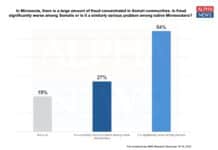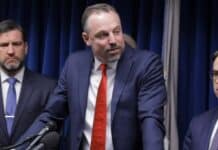The Dayton Administration’s fertilizer regulation rule continues to be postponed — this time through a court order upholding the legislature’s authority to delay the implementation.
At the end of the last legislative session, lawmakers put the brakes the Minnesota Department of Agriculture’s proposed Groundwater Protection Rule, commonly known as the Nitrogen Fertilizer Rule. Now, according to a recent ruling from an administrative law judge, the proposed rule will continue to be delayed until at least the conclusion of the 2019 legislative session.
Sen. Bill Weber (R-Luverne), chair of the Senate Agriculture, Rural Development, and Housing Policy Committee, praised the ruling, adding that the decision allows the legislature enough time to “carefully consider the proposed rule, its effects, and the research upon which it is based” before implementation.
“This ruling is a victory for Minnesota farmers and the legislature’s authority to oversee state agencies” Weber said. “This has the potential to greatly impact our agricultural community. The legislature must carefully consider the proposed rule, its effects, and the research upon which it is based. This ruling ensures we will have adequate time to do just that in the coming legislative session.”
Weber is hesitant on the necessity of the rule, adding that the agricultural industry continues to seek more advanced processes and improved safeguards in the use of fertilizers. Any overarching rule, Weber says, should focus on the few bad actors rather than going after all farmers with excessive burdens.
“The agricultural industry is already applying many points of the rule in their best management practices. This is about government overreach as bureaucrats – many of whom know nothing about farming – try to regulate the industry,” Weber said. “The current administration has not been a friend of agriculture; hitting the pause button will allow a thoughtful, realistic review of the rule.”
“I will be working with the new governor’s administration, my constituents, and my colleagues to ensure all stakeholders are included in this discussion,” Weber added.











